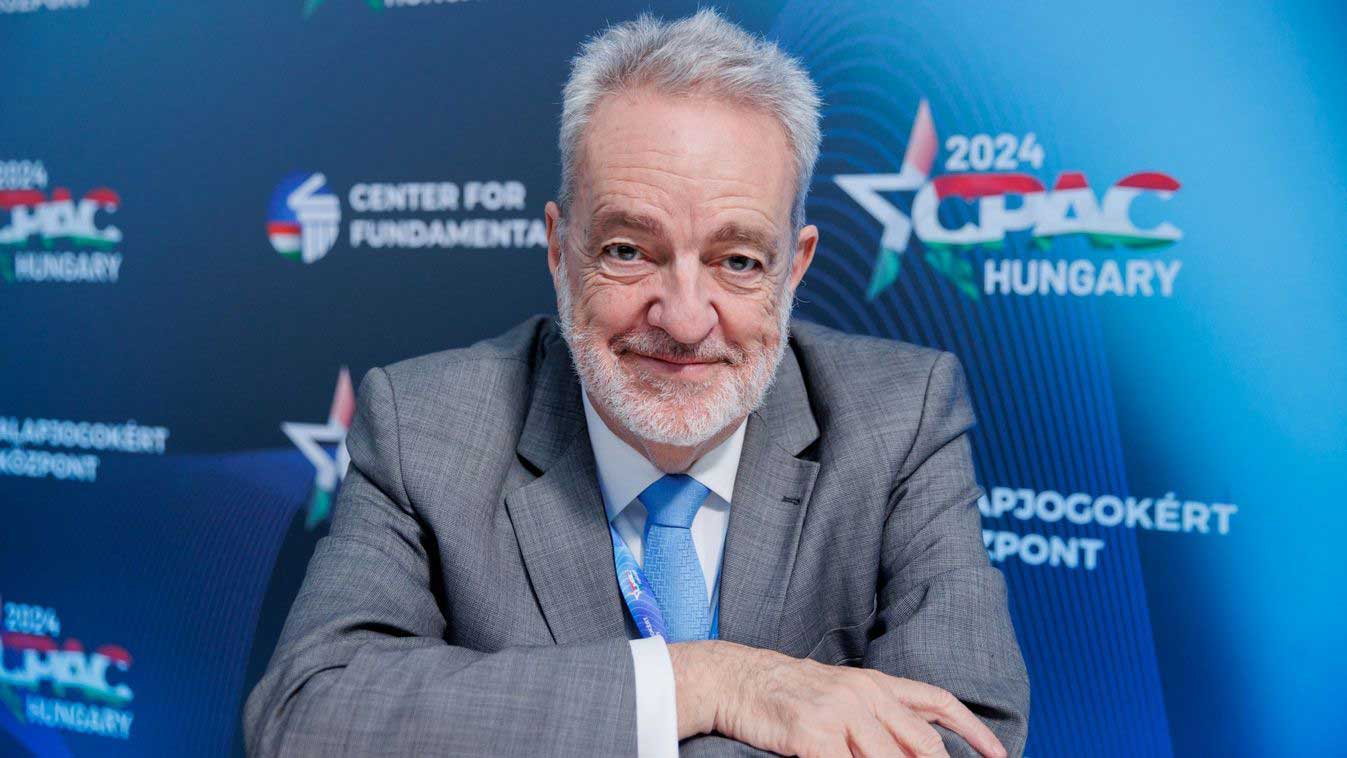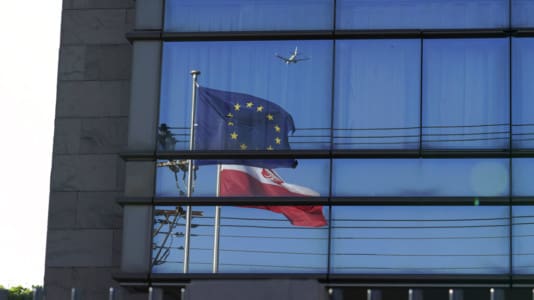Conservative political parties across Europe should begin contingency planning for the inevitable time in the near future when right-wing platforms are the victims of mass censorship by an increasingly desperate liberal establishment, a senior Belgian nationalist lawmaker told Remix News at the Conservative Political Action Conference (CPAC) in Hungary last week
“Globally, we expect that we have to seek alternatives. That’s why we now organize visiting homes on a very large scale. We are shifting toward means that give us the opportunity to reach the electorate even if we are cut off on social media,” said Vlaams Belang MEP Gerolf Annemans.
“We have new means to talk to the people. People want to hear us. So, the people are open to hear and to listen to us and we adapt to the situation. We expect social media to be shut down for normal political communication,” the MEP warned.
Vlaams Belang is a Flemish nationalist party that proposes independence for the region of Flanders from the rest of Belgium. It has had considerable success on social media in recent years, particularly on Facebook where it has amassed 620,000 followers, helping the party push its core messages and propel itself to the top of the polls in the region. Furthermore, the party is the most popular party with young people, and a key element of that popularity is the party’s efforts on TikTok and Facebook, including substantial monetary investments into the platforms.
The right may be forced off social media
However, this success, which many other right-wing parties have enjoyed on social media, will inevitably result in a backlash. Annemans warned that a major crackdown was coming against those across the European Union whose views deviate from the typical left-wing mainstream and that conservative parties need to find workarounds, including face-to-face meetings with the public.
In fact, Annemans, who is also the current president of the European grouping Identity and Democracy (ID), believes radical measures to suppress conservative mouthpieces are just around the corner.
“We invest where we can and we use the means that we have, but of course that cannot rely [on social media] for more than a few years because we see what the European Union is doing with the Digital Services Act,” he said.
The Digital Services Act is the European Union’s attempt to regulate social media, placing requirements on digital platforms to monitor content and remove that deemed to fall short of being “socially desirable.” The vague definitions of “harmful content” and “disinformation” could result in tech platforms acting in an overzealous manner in order to avoid financial penalties imposed by the European Commission for failing to comply with the regulation.
Annemans accused the European Commission of giving Thierry Breton, the French commissioner leading the social media crackdown, “the means that are part of a Soviet dictatorship model to intervene with the political communications of opponents. Macron’s opponents, but in Belgium, of course, the opponents of the left-liberal regime.”
The draconian measures have led to Vlaams Belang looking at how else it can spread its message and is reverting to the traditional political campaigning method of door-to-door canvassing.
“Globally, we expect that we have to seek alternatives. That’s why we now organize visiting homes on a very large scale. We are shifting toward means that give us the opportunity to reach the electorate even if we are cut off on social media,” Annemans said.
“We have new means to talk to the people. People want to hear us. So, the people are open to hear and to listen to us and we adapt to the situation. We expect social media to be shut down for normal political communication.”
One beacon of hope for the future of social media has been U.S. billionaire Elon Musk’s acquisition of X, formerly known as Twitter, but Annemans is skeptical the platform can stay immune from the rising tide of regulation and censorship.
“There is a little change with the coming up of Elon Musk on Twitter. But of course, as you know, Twitter is not the only thing, but they’re also on it. He’s a sign of hope and even he, we will have to wait and see. Will he prevail? I’m not even sure that he will be able to keep up this free zone,” the senior MEP warned.
Conservatives are also being targeted offline
It isn’t just social media where conservatives are being suppressed, and a typical example of the censorship of political opponents was evident in Flanders itself just a week before Remix News spoke with Annemans, namely at the National Conservatism conference in Brussels where an order by the local mayor to shut down the event was only overturned by judicial intervention.
“It was a mistake,” the lawmaker said about the attempts to silence political opponents in the de facto EU capital. “I, sadly enough, have to tell you that this is a usual occurrence for Vlaams Belang. We have existed for almost 40 years and have always had trouble when organizing meetings in Brussels or in the region of Brussels.
“There is always trouble with communists, socialists, mayors, etc. So for us, it’s a daily struggle, unfortunately. They thought they could treat the conference like they usually do with us and label the conservatives attending as fascists and racists, but they didn’t realize that they would become world news within a few hours.
“As soon as they saw that, they got phone calls from even the Belgian prime minister himself and had to pull the brakes,” Annemans explained.
He predicted the National Conservatism conference would not endure the same problem again because the liberals had their “fingers burned” but believes that his own party will continue to be stifled by the country’s establishment when the world’s eyes aren’t monitoring the situation.
“They will continue to do so with Vlaams Belang. This is not a democracy. Belgium is not a democracy. That’s what I said during my speech. Don’t trust Belgium, don’t trust the Belgian kingdom.”
How does Vlaams Belang move forward?
Despite its difficulties, the party continues to go from strength to strength and is garnering considerable support from young people in Flanders. Annemans, the party’s former president, explained why he stepped down to enable the party to appeal to the next generation.
“I’m not on top of the list anymore. I pulled back because I’m 65 years old and a wise man. I pulled back from the federal parliament as a group leader after more than 25 years. I pulled back as a party leader for Tom Van Grieken and I pulled back as our lead candidate for the European elections.
“I’m a man who believes in the rejuvenation of a political party. If you don’t do that, you die politically. And that’s why I’m not surprised to see that under the younger leadership of the party, the younger people are attracted by the party. Our ideas are modern. We represent a new time, the new era, and the old powers that be will have to pull back, because here we are, and we are here with the younger generations on top of it.”
He believes his party will continue to grow in popularity among the indigenous Belgian population the more the country experiences radical demographic change.
Asked whether it was accurate that 62 percent of the Brussels population comprises non-EU nationals, Annemans replied, “No doubt.
“What we see is a radicalization of the Muslim population which changes the cultural image of the city. The Western civilization is reducing every day to a non-existent part of the Brussels cultural environment.
“There is a bubble around the European Parliament and European institutions, a bubble of a few thousand Eurocrats, and then there are the Muslim surroundings of the rest of the city. What we expect to happen if we don’t integrate Brussels into a more Flemish approach of the future, what we fear will happen, is that it will become the first Muslim-governed capital in Europe.”





